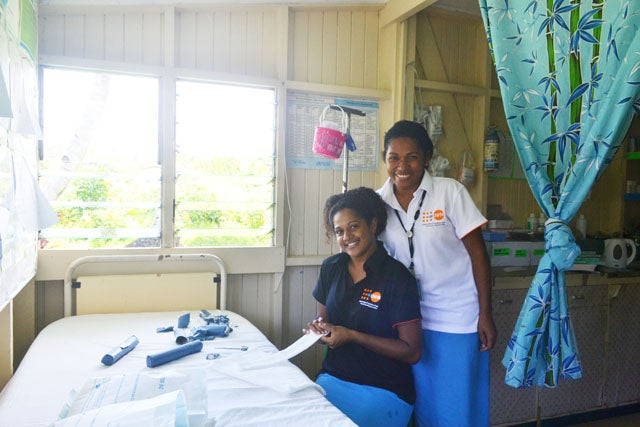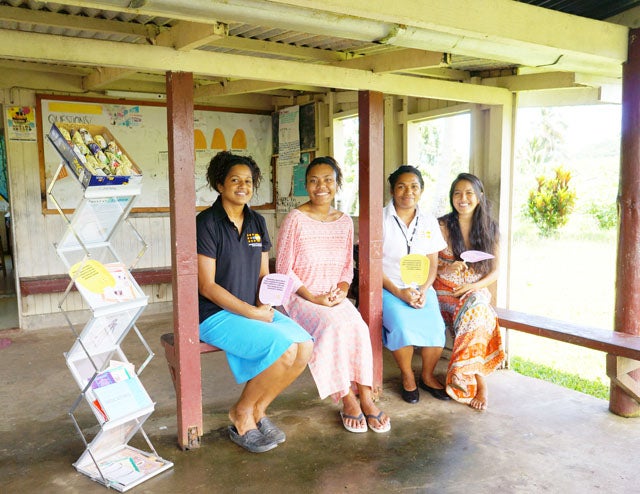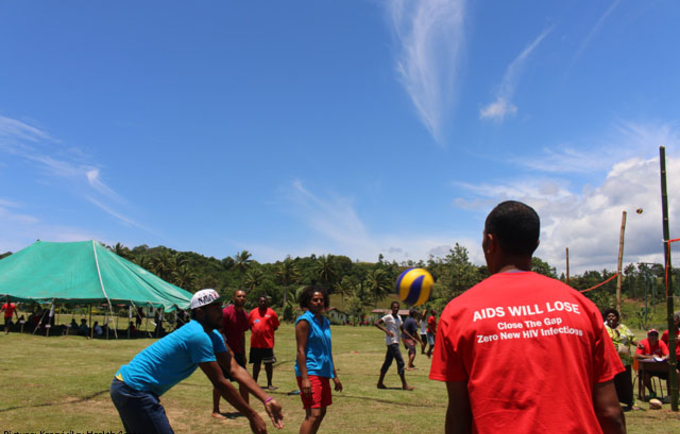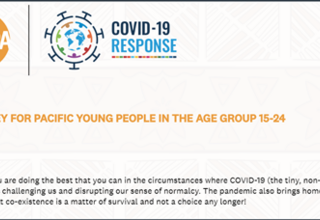ABOUT 60 kilometres out of Fiji's Capital City (Suva), Korovisilou Health Centre is sandwiched between a village and a school. It is staffed by a trio of two nurses and a doctor whose medical area comprise 8000 people spread across nine villages and 17 settlements.
The health centre is the midpoint between Suva and the next town, Sigatoka, offering basic services like sexual and reproductive health services including family planning. Of the medical zone population, about 20 per cent are young people.
Bulou Tekula Waqadrola, who has been based at Korovisilou for six years, believes rural-based women and young people need more support. Like most other centres, women are solely responsible for sexual and reproductive health issues, including family planning or maternal health-related issues.
In 2015 though, an 18-year-old man never missed a clinic visit, a most encouraging development for the staff who hope it is an indication of an evolving mentality on the responsibilities of issues related to sexual and reproductive health.
There has also been a shift in terms of family planning - an increasing amount of people are beginning to ask more questions on health-related issues including the options they have in terms of family planning. Of about 50 condoms placed outside the clinic, only 20 are usually left by the end of the day.
Apart from the prevailing attitude that designates full responsibility of safe sex to females, a reported increase in adolescent pregnancies in the last three years has also been attributed to the lack of knowledge.
The health centre, for example, provides five family planning options of which jadelle is quickly becoming popular, though for vasectomies and tubligation, men and women have to visit referral hospitals. Transport costs, non-appearance of doctors once they get to hospital or changing theatre days without warning have usually meant an end to intentions by those who have had to travel from rural areas.
"The team here goes out to the villages and settlements. It is part of our public health services and people do come in numbers when we are in villages but the challenge is people actually coming to the health centre," staff nurse Bulou said.
Sports has, perhaps by default, become a platform for awareness activities. The centre now organises yoga and aerobics sessions during which information is disseminated, and on December 11, the health centre hosted a volleyball tournament simultaneously observing World AIDS Day (WAD) 2015.
US Peace Corps volunteer Lillian Ma, who has spent more than a year at Korovisilou, has been most instrumental with new approaches. Ma had to seek funding for the volleyball tournament. Friends of Fiji, an organisation comprising Fiji Peace Corps alumni, came to their rescue.
"I was inspired by the World AIDS Day observation in Suva in 2014 but having lived here for a bit, I realise that most times, those big events did not really come down to our level. I wanted something that would make the young people come," Ma said.
Staff nurse Bulou had organised a volleyball tournament in 2012 so while the concept was not new, the event was a lot more jam-packed with knowledge-based activities - a volleyball tournament, a role play competition and an oratory contest.
"We wanted to address the knowledge gap but do it in a way that did not look like we were lecturing them. The event had to be about the empowerment of young people and breaking barriers to knowledge-sharing and discussion, using sport," Ma said.
"Though we can't change anyone who doesn't want to change, at least information would be out there."

The volleyball tournament theme was "Serua Youth Unite in the Fight to Zero Infection, Zero Stigma and Zero Deaths".
The United Nations Population Fund, UNFPA, Pacific Sub-Regional Office provided materials for prizes and private sector support was immense. The Taunovo Buses owners agreed to have a bus run a unique route for those interested in attending the volleyball tournament, Baka Blues Café, Waidroka and Pure Fiji also pitched in. This was apart from the representation by FJN+ and Fiji Association of Sports and National Olympic Committee (FASANOC).
Ratu Latianara College sixth former Elenoa Cakauniqoliqoli won first place in the oratory competition, Galoa Youth won first place in the role play activity and Lepanoni Youth won first place in the volleyball tournament, Vunimaqo Youth was runner-up. There were also field games including jeopardy (HIV and AIDS).
The real success of the event however was the fact that 42 people volunteered for HIV tests.
"UNFPA commends Korovisilou staff members and Ms Ma for making the extra effort to reach the population under their care, particularly when you consider the 2015 global report on HIV and AIDS confirms an increase in infections" Dr Laurent Zessler, UNFPA Pacific director and representative said.
"Sexual and reproductive health is something that both men and women must take full responsibility of, as individuals and as couples because it is about their own good health, and that of Fiji's future.
Globally-speaking, two million people became newly infected with HIV at the end of 2014 while for the same period, 1.2 million people died from AIDS-related illnesses. About 73 per cent of pregnant women living with HIV had access to antiretroviral medicines to prevent transmission of HIV to their babies in 2014 and new HIV infections among children were reduced by 58 per cent from 2000 to 2014. As of the end of 2014, 36.9 million people were living with HIV.
Korovisilou is an excellent example of the relationship between sport and development - using sport to address knowledge gaps in sexual and reproductive health and services, which would ideally empower people in their medical zones to make informed decisions.
Development agencies like UNFPA and its partners work with governments as UN member states to ensure individuals or couples have the tools to facilitate their decisions, for example, the number of children they can afford.
The social impact of unplanned pregnancies and/or in relation to adolescent pregnancy, from the abrupt end to a girl's education that potentially deprives a nation of another teacher or engineer, will have an overall impact at the national level - be it monetary or in terms of human resources.
Sport is a development powerhouse, we just need to use it strategically.





